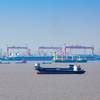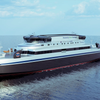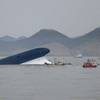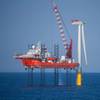National Oil Spill Commission Releases Final Report
The National Commision on the BP Deepwater Horizon Oil Spill and Offshore Drilling issued its final report - Deep Water: The Gulf Oil Disaster and the Future of Offshore Drilling:
“On May 22, 2010, President Barack Obama announced the creation of the National Commission on the BP Deepwater Horizon Oil Spill and Offshore Drilling: an independent, nonpartisan entity, directed to provide a thorough analysis and impartial judgment. The President charged the Commission to determine the causes of the disaster, and to improve the country’s ability to respond to spills, and to recommend reforms to make offshore energy production safer. And the President said we were to follow the facts wherever they led. This report is the result of an intense six-month effort to fulfill the President’s charge.
“From the outset, the Commissioners have been determined to learn the essential lessons so expensively revealed in the tragic loss of life on the Deepwater Horizon and the severe damages that ensued. The Commission’s aim has been to provide the President, policymakers, industry, and the American people a clear, accessible, accurate, and fair account of the largest oil spill in U.S history: the context for the well itself, how the explosion and spill happened, and how industry and government scrambled to respond to an unprecedented emergency. This was our first obligation: determine what happened, why it happened, and explain it to Americans everywhere.
“As a result of our investigation, we conclude:
• The explosive loss of the Macondo well could have been prevented.
• The immediate causes of the Macondo well blowout can be traced to a series of identifiable mistakes made by BP, Halliburton, and Transocean that reveal such systematic failures in risk management that they place in doubt the safety culture of the entire industry.
• Deepwater energy exploration and production, particularly at the frontiers of experience, involve risks for which neither industry nor government has been adequately prepared, but for which they can and must be prepared in the future.
• To assure human safety and environmental protection, regulatory oversight of leasing, energy exploration, and production require reforms even beyond those significant reforms already initiated since the Deepwater Horizon disaster. Fundamental reform will be needed in both the structure of those in charge of regulatory oversight and their internal decision-making process to ensure their political autonomy, technical expertise, and their full consideration of environmental protection concerns.
• Because regulatory oversight alone will not be sufficient to ensure adequate safety, the oil and gas industry will need to take its own, unilateral steps to increase dramatically safety throughout the industry, including self-policing mechanisms that supplement governmental enforcement.
• The technology, laws and regulations, and practices for containing, responding to, and cleaning up spills lag behind the real risks associated with deepwater drilling into large, high-pressure reservoirs of oil and gas located far offshore and thousands of feet below the ocean’s surface. Government must close the existing gap and industry must support rather than resist that effort.
• Scientific understanding of environmental conditions in sensitive environments in deep Gulf waters, along the region’s coastal habitats, and in areas proposed for more drilling, such as the Arctic, is inadequate. The same is true of the human and natural impacts of oil spills.”
Read the complete report at:
http://www.oilspillcommission.gov/sites/default/files/documents/OSC_Deep_Water_Summary_Recommendations_FINAL.pdf













